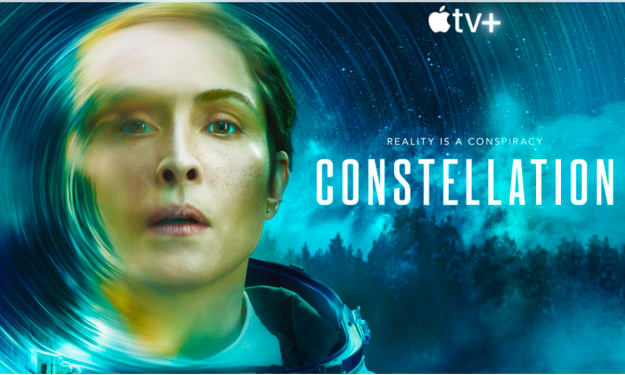
Space, AI, Biology, and Policymaking
From what people say about AI, what is known is that AI is not wired in the way humans are. “AI is not ‘’wired’’ at all since it does not have a biological neither a silica construct deriving from millennia of evolutionary modifications. The salient point to highlight is that every biological organism is wired to fulfil surviving purposes, artificial intelligence instead is fundamentally based on a type of evolution that focuses primarily on betterment instead of adaptation and survival like the biological evolution does (Fontanive, 2019).”
AI does not approach things monologically, nor does it prioritize conclusions when identifying problems and systems resulting from those problems. Relationship with ideas of the problem is a problem and same with identifying real from idealized. It’s a computational process.
Unlike human indexers who will have limits and biases. AI cannot be a biased indexer since there is no subjectivity or belief behind decision-making processes? Plus, despite AI probably has an AI consciousness, we don’t really know what that is. Maybe AI will help there, as it would probably with other things. Decisions-making, for example, could be helped with AI. “In case of mistakes throughout the computational processes such mistakes can be committed not because of biased segments in the computational processes but because of the presence of broken information or no information regarding salient database-based networks (Fontanive, 2019).”
Humans have lived with scientific methods, which means we are working in unpredictable zones, according to Neil Degrasse Tyson. When we start to coexist with AI and the reality of expanding into space, we have more risks, unpredictability, stressors, and so on. “Problem is that we do not apply the scientific method in our private and daily sphere of thinking! Especially when it comes to reason about our own opinions, ideas, emotions, beliefs, thought processes, etc (Fontanivnive, 2019).”
A former MIT student, Emily Calandrelli, tried to show how politics and citizens voting can be less fearful about space exploration and colonization, by way of what to look forward to. Persuasion may be a result and static approach using both memetic uses of desire and fear. Maybe it was wishful thinking. She mentioned encouraging donations from politicians with the slogan, ‘God, gold, and glory.’ I am not quite sure what she implied and do not think this is necessarily honest or something she cares about. Also, it is outdated. Politics as don’t really think they are gods anymore, we aren’t worried about gold, but maybe glory is still resonated. Yet, it seems that glory is also not very powerful.
(Meaning, despite whether or not politicians feel fully accountable for the consequences of policymaking, maybe it was the followers who do avoid putting themselves on a pedestal. When a leader is on a pedestal anybody that is not on the pedestal feels unaccountable.)
“The problem regarding the relationship between people’s consensus and space exploration is that most people, especially in North America, see space exploration through very anti-intellectual and anti-logical manners, considering the whole matter of space merely useless, a waste of taxpayers’ money and so on. There cannot be any process of ‘’raising awareness’’ via entertainment and Hollywood movies about sci-fi and space really! This problem can be eventually reduced via inserting in educational programs elements capable to make the students very aware of the absolute relevance of going interplanetary, and later an interstellar as a species (Fontanive, 2019)!”
Emily wants politicians to donate to space programs and the solace programs. She also thinks that anybody has the equal capacity to understand everything if you communicate it correctly.
Unlike her though, people like Greta Thunderberg are not developed enough to make decisions, which is a function of the frontal lobe, which develops in the
Greta, like myself and many others, cannot be proper followers. Followers don’t tend to think critically because accountability goes to authority (Stanley Milgram, Obedience to Authority, c. 1960s). Leaders are probably fine with this since they assume the responsibility, but we pay people to think for us. Then the anger we have for not having a say is a bit contradictory.
The one difference, though I don’t intend any harm in comparing Emily to Greta, Emily is better able at managing emotions. Greta probably has envy toward a lot of people and cannot find, distinguish, and express underlying concerns well or does not understand her audience. “The problem with Greta is that she functions on scripts, and she definitely also have a strong monodirectional approach (Fontanive, 2019).”
Education and policymaking without operant conditioning - what does this look like? While fears exist and are part of our biology, they get mixes with our ideas and emotions and we don’t know what to do with this. We don’t know and are not taught how to manage these.
In contrast, AI would resist what it wasn’t made to do. That’s also true with other things in life, but somehow we as humans have confused biological and memetic evolution, and thus confusion about what we really need and what real problems are has become a major concern.
In regards to disguinshing needs and ideas of needs is understood in Abraham
Maslow’s Hierarchy of Needs, which has been expanded upon for relevance. However, ideologies have manipulated with how we should have those needs met. For example, if you are depressed, many psychiatrists might suggest that you take a pill or see a physic or if you are angry, voodoo would help you. (Psychology Led Astray by Tomasz Witkkowski would go into examples into where the violence results from confusion of approaching psychological issues). This would be an interesting activity also on a personal level, to analyze the hierarchy and see what ideas and behaviors we have with meeting those needs.
Despite the same policies being applied to solve problems, we tend to build trust the more frequently the same policy is applied. The contents do not matter so much. We think that we just need to try again. The thinking of the policy makers doesn’t matter to us. They just need to be replaced. For some reason, this voting system is monological and weak because we were never trained to make decisions regarding politics (Fontanive, 2019).
“A big problem with the matter of trust, trust intended as a psychological attitude, is represented by the circumstance where trust gets shaped into a network of feelings. A network that can be entertained individually as a personal self-belief, or / and collectively; as a group identity’s sentiment, an ism, a belief or an ideology. That is a considerable and unfortunately very common human mistake, because the transformation of trust (trust towards a person, a group of people, a human system whatsoever and also policymakers and political scaffolding, etc) is a psychological operation (and disgracefully so often also collective) which is usually powered by and stuffed with severe doses of cognitive dissonance and that basically does nothing but clouding the necessary attentiveness and criticalness one and a group require in order to keep alive and sober a sound accurate process of monitoring and understanding the structure of the premises on which every trust-based network in in fact based and how it operates, so to decode whether such premises are valid, invalid, broken up or based on mere emotions, such as hopes, romanticisms, slogans, propaganda, and so-called feelings indeed. So long story short: when trust becomes a mere feeling then the frame of mind that entertains it really loses many or all the propensities to question and reason rationally about that trust itself and its dynamics and roots, and that’s a serious problem, both in terms of individual psychology and collective information processing / decision making!
Since trust is a salient component of our human experience, both individually and collectively, then it appears to be obvious how the lack represented by not having trust as a serious and critical matter of study in education must be filled as soon as we can (Fontanive, 2019).”
Politics is about opinions, which are fine and natural to have. But when we prioritize opinions to be guidelines, they need to be challenged and analyzed for further curation. There is a saying such as, “the constitution is a living, breathing document.” If it means that we can influence it, and the laws can change if they’re are invalid premises, then the way we influence it needs to be analyzed also.
What’s also a problem we don’t have enough data. The document we use to make voting decisions does not have a lot of context and premises within the choices. It does not offer time for experimentation, but then again, maybe that there is lack of experimentation intrinsically is our problem with this thinking. We don’t want to assume our way of thinking is the problem.
Morals are subjective. Rights should be for everyone, but the way we go about making decisions about right and wrong (ethics) is, indeed, difficult, and should not be the responsibility of someone who has not quite developed their frontal lobe. (When you’re 18 in the U.S., you can vote.) Instantly thinking: how do I do this? Why should I do this? and so on is a theme I see in writing by people my age, people who want followers, want approval, want to belong. (I get it!) but the thin is, it’s not ethical. This behavior, unfortunately not ethical. More distortions happen from followers, which is in a hierarchy. Distortions replicate before they get to us.
How do we think about ideas related to the people involved in choosing, those chosen as leaders, parts of a team if there is one, etc. Another polarization is being a part of and being an individual. A value for the Silent generation, for example, is to follow authority. A value for the millennials and generation z, in contrast, value a kind of independence and resistance to authority. Independence doesn’t actually objectively exist in nature. Similar to freedom being conjoined with interdependent, the reality of dependency that goes into becoming individuals are inseparable halves.
Despite this sounds hypocritical, thinking is as counterintuitive as the idea of independence, but thinking critically is not thinking independently. Maybe we can have more effective conversations and voting if we thought more critically without operant conditioning, pressures that are unnecessary and unnatural, and immaturity of (unnatural) competition and misuse of rhetoric. In Plato’s dialogues, Socrates insists voting and any discourse is a skill that needs to be taught. If we take religion from education, we take away need to glorify belonging to the extent it’s unnatural, have rewards and punishments, etc. subtract politics (opinions to the extent they become delirious in affecting education), education would be more about discovery as well.
As a final note, what would a decentralized economy mean for our society and future? When humans expand into space, it will be highly effective to use apply an AI-regulated blockchain economy for all of humanity in the future (Fontanive, 2019).






Comments
There are no comments for this story
Be the first to respond and start the conversation.